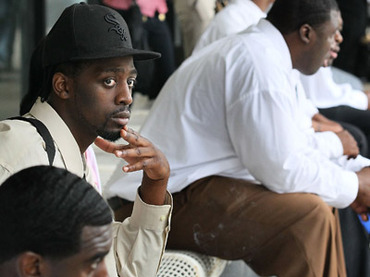
The incarceration rate for American-Americans is so high that young black men without a high school diploma are more likely to go to jail than to find a job, thereby causing the breakup of families and instilling further poverty upon them.
“Prison has become the new poverty trap,” Bruce Western, a Harvard sociologist, told the New York Times. “It has become a routine event for poor African-American men and their families, creating an enduring disadvantage at the very bottom of American society.”
While few would argue against locking up murderers and rapists, many social scientists have begun to discuss the problem of imprisoning too many people – especially when those people face long sentences for nonviolent crimes. The US has the highest incarceration rate in the world, locking up about 500 people for every 100,000 residents, according to the Bureau of Justice Statistics.
The incarceration rate for African-Americans is about 3,074 per 100,000 residents, which is more than six times as high as the national average. Black men in their 20s and early 30s without a high school diploma are particularly vulnerable: with an incarceration rate of 40 percent, they are more likely to end up behind bars than in the workforce, Pew Charitable Trusts reports.
“The collateral costs of locking up 2.3 million people are piling higher and higher,” said Adam Gelb, director of the Public Safety Performance Project of the Pew Center on the States. “Corrections is the second fastest growing state budget category, and state leaders from both parties are now finding that there are research –based strategies for low-risk offenders that can reduce crime at far less cost than prison.”
But while the cost of keeping prisoners might be high for government, the cost is even higher for African-Americans – especially to poverty-stricken families who lose a relative to the penal system. The Times interviewed parents Carl Harris and Charlene Hamilton, whose daughters grew up without a father. Mr. Harris, a crack dealer who received a 20-year prison sentence at the age of 24, was forced to abandon his family when he was locked up.
Unable to help out with the accumulating bills that come with raising children, Hamilton and her daughters ended up homeless on several occasions. Struggling to pay the rent and cover the costs of food, Hamilton also fought to pay for the out-of-state visits to see her daughters’ father.
“Basically, I was locked up with him,” she told the Times. “My mind was locked up. My life was locked up. Our daughters grew up without a father.”























